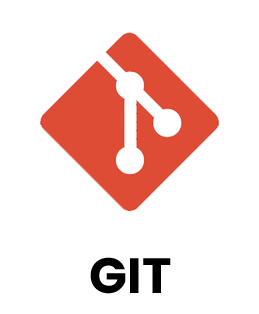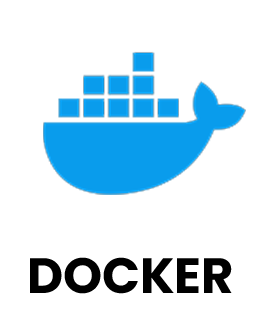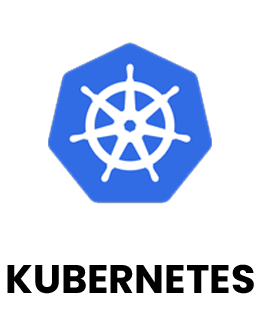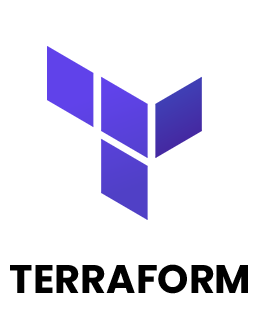DevOps certification training helps you learn DevOps online and masters several areas of software development, operations, and continual integration. You may study DevOps tools like Git, Puppet, Jenkins, SVN, Maven, Docker, Ansible, Nagios, etc. in this finest DevOps training. This is the only DevOps course in India that has been evaluated, certified, and aligned with industrial standards. DevOps training is delivered via classroom and virtual formats live online. Learn how DevOps may be used by industry experts from foundation to practitioner through Best DevOps training and placement. You may learn and master the best DevOps instruments such as Git, Jenkins, Selenium, Docker, Ansible, Chef, Splunk, ELK Stack, Gradle, Maven, Kubernetes, Nagios, and many more. You will be working on real-world projects in this DevOps Certification course in Kolkata.
Additional Info
DevOps is a set of methods that automates and integrates software-development processes between IT teams and enables software to be developed, tested and released faster and more confidently.The term DevOps was formed by the combination of the words "development" and "operation," meaning that the cultural shift connects the historically functioning gap between the development and the operation teams.The continuous nature of DevOps allows practicers to demonstrate how the DevOps phases relate to each other using the infinity loop. The bow symbolises the need for constant cooperation and improvements over the entire life cycle, despite its appearance sequential.The DevOps lifecycle is composed of 6 phases that represent the processes, capabilities and tools necessary for left-hand development, processes, capacity and instruments needed for right-hand operations of the loop. Teams work together and interact to maintain alignment, speed and quality throughout each phase.
Career Path :
DevOps Engineering is an evolving role which companies in various sectors are increasingly relying on for the improvement of businesses. When a company releases a new product, it is the DevOps engineers who are responsible for efficiency and automation of the entire delivery process. With technology evolving, experts agree that the DevOps Engineer's role will still be on demand, which means that these engineers have plenty of exciting opportunities, if they are able to use them. A DevOps engineer with the highest degree of his career can continue in that role for years, helps to manage software releases that make his company outsmart, as well as mentor the future of DevOps Engineering and leading young team members.If a senior DevOps engineer wishes to continue a similar career, he can consider several options. They may move laterally into the role of a project or a product manager, supervising from start to finish the successful completion of the assigns. A lead DevOps engineer can choose to focus on a facet he has worked on in DevOps over their years, such as transitioning to a role that is more focused on network safety and has a role as a security engineer. If you can develop methods for optimising and automatically releasing software, your style might be a role as an automation architect.
As a senior DevOps engineer, it has many advantages, so it can be a role that one can enjoy until retirement or contribute to a new and interesting career journey that can take you anywhere.DevOps Engineers are considered to be indispensable to demonstrate reliability in the detection of new, better technologies implemented in the company's software releases. Combine this technological attitude with a willingness to champion colleagues and to make team projects successful, and the DevOps Engineer is at a high level.A senior career as a DevOps Engineer is an excellent achievement and colleagues will probably show respect and a generous income to match. Senior DevOps Engineers manage a complete DevOps Engineering team and guide their junior employees through quick product deployments to successfully search for and implement new technologies to better serve deployments.
Job Position :
Part of the approach, part of the role, DevOps is increasingly popular in companies in all fields. When it comes to implementing their practises, DevOps Engineers leads the charge. DevOps is seen as the most effective way to ensure that products are released on a timely basis within the budget, that the quality of the company is what customers and consumers want and speak well. DevOps Engineers bridge the gap from developers to teams of operations, using an array of technology tools and experience to ensure the smooth, efficient day-to-day operations in a technology team. While tasks differ from company to day, Devops engineers usually seek to improve their software deployments by using advanced technologies. The goal of the DevOps Engineer is to have a hand in software releases, which are fast, secure and of the highest quality.
1. DevOps Architect :
A DevOps architect is responsible in an organisation or a team for the analysis and performance of DevOps practises. He designs the entire DevOps environment, which incorporates all efficient DevOps methodologies in accordance with industry standards. It introduces the right tools for process automation.
It facilitates processes and operations for development. The DevOps architect also creates an ongoing environment in which the development, testing and production deployment processes can be accelerated. A DevOps architect serves as a team mentor for certain organisations and leads the developers and operational teams to solve the problems.
2. Release Manager :
A release manager in the DevOps environment is responsible for the development and deployment of the software, planning, monitoring and control. The development team and the operational team are developed in sync, allowing for frequent but short feedback loops.
This makes the software available faster. For the current software construction, a release manager is responsible for setting the success and acceptance criteria. The CI/CD pipeline is effectively used and the quality standards of construction are overlooked. A release manager for DevOps culture is more people-oriented and attempted to minimise the impact of the user.
3. Security Engineer :
World safety is commonly known as DevSecOps, he DevOps. The tasks include the use of various tools such as log management and setup management to ensure security. DevOps stresses the philosophy of ongoing security.Security is only implemented when the code is released for production in the traditional waterfall software development cycle. But safety is a key factor in the DevOps culture throughout the cycles.
4. Automation Engineer :
In the DevOps world, an automation engineer works with tools like Maven, Jenkins, Git, Gerrit, Gradle, etc. to develop and maintain CI/CD processes for any application and its construction. It would automate settings management across infrastructure and platforms with tools such as Ansible, Chef, Puppet, SaltStack, Fabric, etc.He is also responsible for the development, management and use of Vagrant, Docker and Kubernetes tools to manage virtual machinery and container. The automation engineer also carries out logging activities and monitoring with tools such as Nagios, Zabbix, ELK stack and Splunk.
5. Software Tester :
A DevOps culture test engineer must align its test design, test cases and test automation with the DevOps framework. A software tester verifies that code changes do not break down the software product as a whole, as it was intended. Briefly, as discussed above, the software testing system ensures that the piece of code satisfies the release manager's successes and acceptance criteria.
6. Integration Specialist :
An integration specialist collaborates on the integration and continuity of the code with infrastructure operations and software development teams. The work environments he creates are holistic. It supports infrastructure needs engineering and testing teams. He also supports developed automation to a certain extent. With the cloud architects, the integration specialist works to implement containers according to the demands of software development engineers.
Key Features :
- Cooperation :
The DevOps operations are based on cooperation between the two departments. Whilst cross-functional training and discipline are necessary and the roles can be changed, this collaboration ultimately contributes to increased efficiency and efficiency.
- Quartering :
A scale on which a practise and its effects can be judged is necessary. You can successfully assess the impact and improvement of DevOps on your working culture and environment by quantifying the amount of deployments, error, time taken for each deployment, time taken up etc before using DevOps.
- Automated systems :
Although we generally have a high degree of automation in the development department we do not follow suit on the operational side. By integrating both departments with the same level of automation, we achieve a level of consistency and efficiency which would otherwise not be possible across the board.
- A holistic approach :
The entire system and the ecosystem that surrounds it is a holistic system.
- Require end-to-end accountability :
Developers and operations used to play different roles in the traditional software development model. However, under DevOps, both groups collaborate as a team that is totally responsible for the application from start to finish. “One of the core principles of DevOps is the control and responsibility of services from "concept to grave," according to Dave Blakey, co-founder and head of technology at Snapt Inc. “Traditionally, developers wrote code and operations deployed that code, but this leads to all sorts of inefficiencies, from differences in production to performance problems [and] unpredictable environments,” he said.
- Foster continuous improvement :
End-to-end responsibility also involves brands continuously adjusting to changing circumstances, whether new technology emerges, customer needs or changes in legislation.DevOps focuses on continuous improvement in order to optimise performance, cost and delivery speed.
- Machine Everything (almost) :
Brands have to use automated processes in order to strive for continuous improvement at high cycle rates and to be able to respond immediately to customer comments. Fortunately, significant progress has been made with automated tools, including the CI/CD pipeline, for streamlining processes.George Miranda, DevOps engineer for PagerDuty, highlighted several automated processes. "Automation is a major milestone in the direction of [CI/CD] or the ability to release new customers rapidly.
Job Responsibilities :
- Analysize and develop processes and steps to improve and expand the current technology used in the company
- Set milestones for departmental inputs and develop processes to facilitate cooperation
- Help other departmental engineers to demonstrate and demonstrate practical solutions to other team members
- Provide details of the solutions proposed, including necessary materials, manpower and time
- Details of the solutions suggested, including necessary materials, manpower and time
- Specify clear objectives for all project areas and develop steps for timely implementation
- Close cooperation with technical professionals in the company to maintain the necessary software and hardware for the efficient completion of projects
- Mentoring and training other engineers throughout the company and trying to improve business processes continuously
- Controlling progress and implementation of initiatives successfully with project management teams
Payscale :
DevOps has evolved during the last few years from just a "Phrase" to a mainstream IT practise. There was an increase of 17 percent compared to 10 percent, according to Statista, as more and more organisations adopt DEVOPs.In addition, Puppet Labs' DevOps report shows a positive trend in DevOps globally. That is why companies do not shy away from offering higher DevOps pay in India.If you therefore have the required expertise and are willing to keep up to date, you expect to continue your career as a DevOps engineer. This line applies in particular to the fact that a DevOps wage in India depends either directly or indirectly on how highly qualified and updated it is.In turn, this has boosted the demand for the professional DevOps, one of today's top paid IT professionals. Tech giants such as Oracle, Barclays, accenture, Tech Mahindra, TCS, IBM, Wipro and Facebook always look for DevOps professionals. Even e-commerce firms such as Target, Amazon, eBay, etc.There is a high demand for DevOps, but companies need the right skills from individuals. Moreover, the higher the salary, the better the experience. According to Payscale, the average annual salary in India is Rs 674K, including bonuses and profit-sharing.It has been accepted that the bigger the brand or business, the higher the salary a person can expect. Consider some of the highest pay packages – Tata Consultancy Services Limited offers salaries of approximately Rs. 627K per year. Accenture Technology Solutions will be followed by Rs 563K.








































